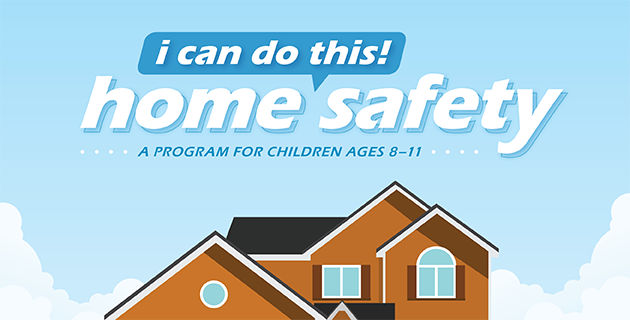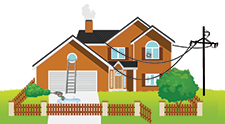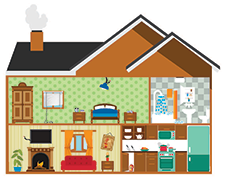 At various times throughout the year, Tigard Police offers a safety program for children to help them stay safe when home unsupervised. I Can Do This! provides children ages 8 - 11 with tools to build confidence, allowing them to be better prepared for unexpected issues which may arise while parents are away.
At various times throughout the year, Tigard Police offers a safety program for children to help them stay safe when home unsupervised. I Can Do This! provides children ages 8 - 11 with tools to build confidence, allowing them to be better prepared for unexpected issues which may arise while parents are away.
If you live in Tigard, follow the Tigard Police Department on Nextdoor to be one of the first to know about newly added class. You can also become a fan of the Tigard Police Department on Facebook or follow @tigardpolice on Twitter for updates on upcoming classes.
“Comfort level is a good gauge for determining whether your children can stay home alone,” says Detective Kristan Rinell of Tigard Police.
Are they able to manage routine responsibilities and make sound decisions in the face of an emergency? When you ask them if they’re ready, do they answer yes, no or do they waffle? An honest assessment of their skill set and emotional maturity can help you evaluate comfort levels and determine if it’s time to hand over the keys or do some more work.
 A child should demonstrate personal responsibility before the transition. Their willingness and ability to follow through with a plan, the house rules and a chore list are positive signs that they’re reliable. If multiple kids are staying at home alone, age-appropriate tasks should be assigned. The oldest child will naturally shoulder more serious tasks, but Rinell cautions against putting anyone in charge to avoid a power struggle. If a disagreement escalates, they should plan to retreat to separate areas until an adult returns.
A child should demonstrate personal responsibility before the transition. Their willingness and ability to follow through with a plan, the house rules and a chore list are positive signs that they’re reliable. If multiple kids are staying at home alone, age-appropriate tasks should be assigned. The oldest child will naturally shoulder more serious tasks, but Rinell cautions against putting anyone in charge to avoid a power struggle. If a disagreement escalates, they should plan to retreat to separate areas until an adult returns.
 Detective Rinell is a strong proponent of scenario based training. Repeatedly running through possible scenarios can leave a mental imprint that informs your child’s decision making when tested. Defining what constitutes an emergency will ensure that their concern for the broken XBox is sidelined for later whereas the fire in the microwave is immediately addressed. Examples of scenarios may include what to do if:
Detective Rinell is a strong proponent of scenario based training. Repeatedly running through possible scenarios can leave a mental imprint that informs your child’s decision making when tested. Defining what constitutes an emergency will ensure that their concern for the broken XBox is sidelined for later whereas the fire in the microwave is immediately addressed. Examples of scenarios may include what to do if:
- Police, fire or medical assistance is needed. Show them how to call (without actually dialing) and review examples of when they should and shouldn’t call. If your child doesn’t have a cell phone, Rinell recommends buying at least a prepaid phone that they can readily access in their pocket.
- Someone knocks on the door. Rinell advises parents to adopt a policy of not opening the door. Children should check to ensure that all doors and windows are locked.
- A fire or gas leak occurs. Talk to kids about cooking safety and other activities that can cause a fire. If there is thick smoke, they should know to stay low and go. Can they identify the smell of gas? In that case, they should cover their mouth, nose and leave immediately. Although a difficult conversation, they need to know to leave immediately for their safety even if a pet remains inside.
- They encounter hazards such as broken glass or a gun. If they see a gun left out at home or a friend’s house, instruct them to walk away and tell an adult immediately.
- Someone is injured from minor cuts and burns, nosebleeds to serious injuries requiring immediate medical attention. Stock the first aid kit together, explaining what can be treated at home and what requires medical attention.
Get to know your neighbors. “It’s important for your children to recognize their faces and feel comfortable asking them for assistance when necessary, even calling 9-1-1 on their behalf.”
For the waffling child, gradually increase the time they spend alone. Initially you may visit your neighbor for fifteen minutes, offering assurances that you can be easily reached and will return soon. “With each success, they will build confidence and you can let out the leash a little more,” says Rinell.
Oregon law dictates that a child must be at least ten years old to stay home alone without adult supervision. However, their comfortability being alone and dealing with the challenges that may emerge can also reveal their readiness for this transition.





